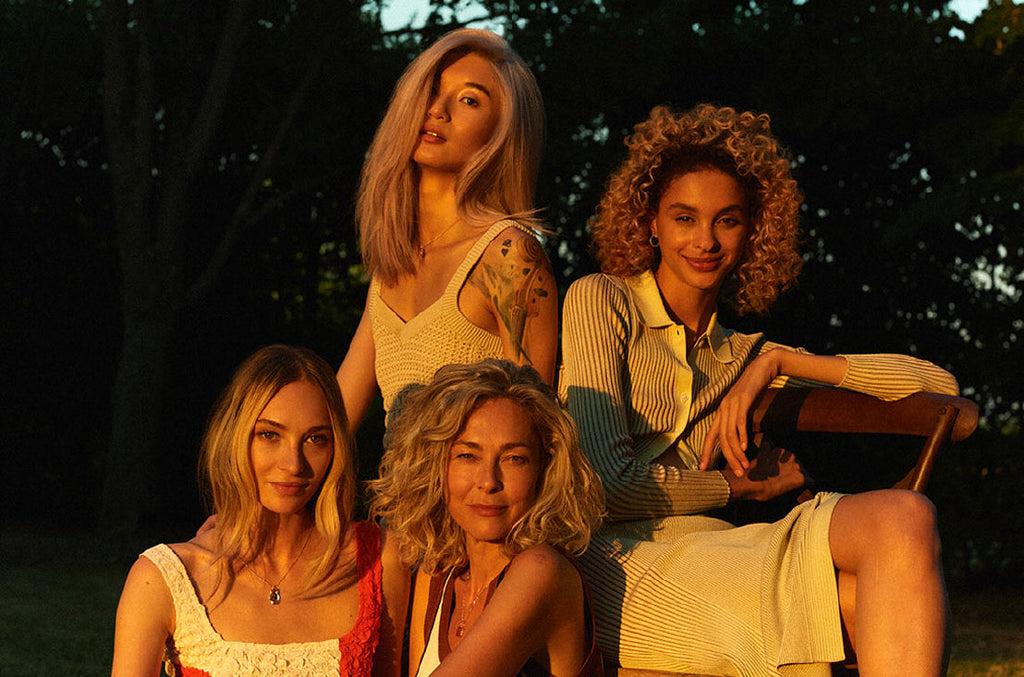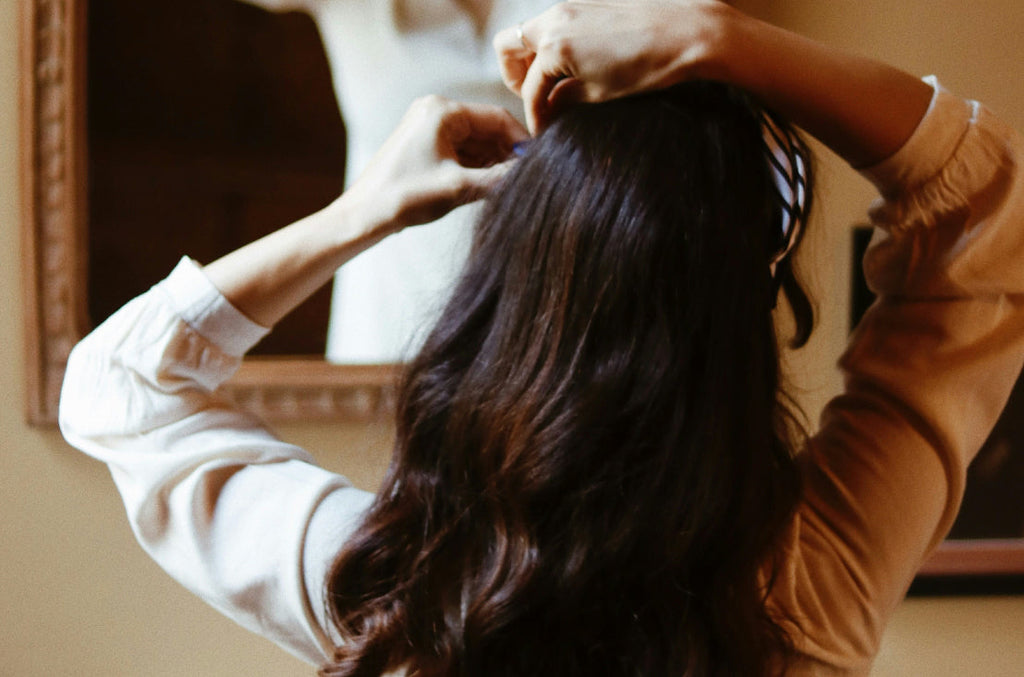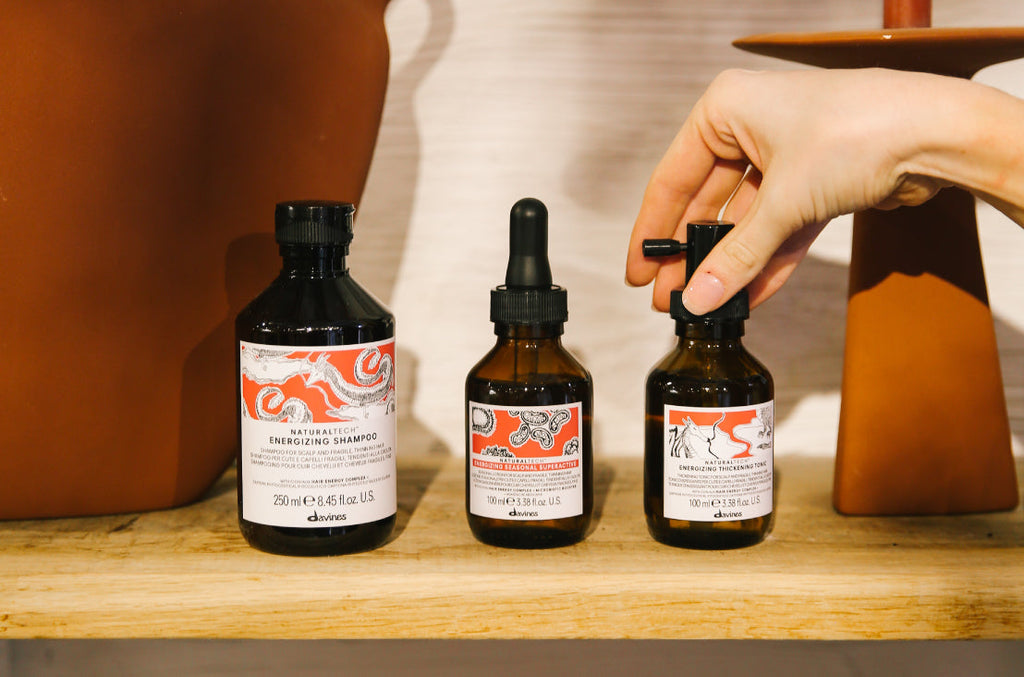Free Carbon Neutral Shipping On Orders $75+, Plus Free Samples!
Pay with Klarna
Free Carbon Neutral Shipping On Orders $75+, Plus Free Samples!
Pay with Klarna
Bouncy, natural curls are beautiful — tools like curling irons, hot rollers, and even overnight braids wouldn’t exist if people with different hair types didn’t covet the look of coils and waves. But sometimes, even people blessed with this hair type are looking to switch things up. If you have naturally curly hair and want to try and straighten it without damage, the first question that you’ll probably have is “but… is avoiding damage even possible?” So now we’re going to play Detective Haircare, and investigate.
Before we discuss what you should do, let’s talk about some common mistakes people can make on the path toward sleek, straight hair.
To straighten curly hair, your hair needs to be prepped with a heat protectant product, such as a blowdry hair primer, to make sure that you’ve created a barrier against any incoming heat. If you don’t have a solid plan for protecting and priming your strands before applying heat, you’re risking causing significant damage. The bonds in your hair need time to recover after the application of heat styling tools: repeated heat damage breaks down the hair strands, comprising the protein structures within them, and the damage caused is irreparable. You’ll be stuck waiting for the affected strands to grow out, as they have probably also affected your curl pattern negatively.
A simple way to help avoid this damage is adjusting the heat of your styling tools, depending on your hair type: someone with fine, wavy hair doesn’t need a 450 degree straightening iron to get sleek locks, so why expose your hair to that potential damage? Start on a low setting and work your way up to see what works.
Photo by @karlibobarley
Every good beauty routine has a strong foundation — if you’re naturally curly, achieving straight hair starts with the products you use in your shower routine.
First, wash your hair with a smoothing shampoo and conditioner. If your locks tend to be on the dryer side, try using a more nourishing hair mask instead of a conditioner. Sleek, straight hair requires locking in as much moisture as possible since moisture helps to ensure that your hair is as elastic (and therefore good at recovering from damage) as possible. When you’re ready to rinse your hair, use lukewarm or cool water, to help the cuticle of your hair lie flat, locking in moisture and further helping to prevent frizz.
When you get out of the shower, use a microfiber cloth instead of a cotton towel to dry your hair. As we discussed in our post on how to fix frizzy hair, an absorbent microfiber cloth helps you to avoid the frizz-causing friction that often comes from regular cotton towels.
If you’re still noticing that your hair is on the dryer side, try adding a few spritzes of a leave-in hair milk to your routine before you gently detangle your strands with a wide-tooth comb. You also might want to use a hair smoother for additional protection: it moisturizes your hair without adding residue or weighing it down, leaving you with soft and shiny hair that’s easy to detangle and comb through.
Protecting your hair against damage with a heat shield for hair is one of the most important steps. It should give you some key benefits: shielding your hair against the damage from heat styling, while also helping to further condition and elasticize your strands to help them recover from heat application when you’re ready to go back to your curls.
Now, it’s time to move on to the actual styling. Before you blow-dry, section your hair with styling clips — by dividing your hair into sections, starting with the bottom layer of your hair, you’re avoiding the possibility of re-straightening or using heat tools on parts of your hair you’ve already worked on.
Photo by Lindsay Del Colletti
The two most efficient ways to straighten your curly hair are to either blow dry it smooth or use a flat iron — a blow dryer is a great choice if you’re looking for a more voluminous look, and a flat iron is generally more effective when tackling more stubborn or defined curls. And they’re both adaptable: if you try the blow-dry tutorial and aren’t satisfied with the results, just move on to the straightener. Let's discuss the steps for each so that you can see which technique you prefer.
Now that your hair has been straightened, you’ll need to use the right finishing products to lock in shine and moisture. Apply a pump of hair oil to your palms, and gently smooth over the surface of your hair, working from the top to your ends. Now you’ll have shiny, reflective locks in addition to your newly-straightened strands. Just try to avoid getting any on your scalp, since this can cause unnecessary oiliness — and if you have hair that’s on the finer side, try using a lighter finishing oil on the surface of your hair instead. If you’re concerned about flyaways (or dealing with a particularly humid day), finish with a medium-hold hairspray.
View this post on InstagramA post shared by Davines North America (@davinesnorthamerica) on
Now that you’ve put in all this effort to straighten your hair, don’t sacrifice your day 2 style! Try sleeping with a silk or satin pillowcase — this reduces the friction of your head rubbing against the pillow, which can cause additional frizz, breakage (and a potentially messed up hairstyle in the morning). If you wake up and notice a little bit of greasiness at your roots, apply some dry shampoo to your scalp.
Feel free to apply additional shine serum during the day, especially if you’re noticing that your hair is starting to frizz up a bit. Avoiding exposure to water or moisture in your environment is key to helping to preserve this look since even a little bit can cause your curls to revert to their natural shape. Remedy this by using a shower cap when you bathe, or occasionally touching up your look with a quick run through with the flat iron.
Once or twice a month, use a nourishing hair mask or repairing treatment as an extra treat for your hair. The process of straightening curls can be stressful even with the right preparations, so this is a great way to make sure your hair is as healthy as can be. If you’re thinking that you need to consider looking into additional treatments to help repair damaged hair, be sure to check out our blog post “Repair Your Damaged Hair With a Bond Building Treatment” for additional suggestions.
And to really treat your hair right when you’re not looking to straighten it: try air-drying your hair whenever possible. We have some great curly hair routines for you to follow when you’re looking to let those beautiful curls shine again.
By Lauren Hannel, staff contributor
cover photo by @karlibobarley
Subscribe
Sign up to hear about product recommendations, styling how-to's, tips & tricks, and more!
Plus, Free Shipping on your first order!
Join our newsletter to enjoy free shipping on your first order.
By submitting this form, you agree to receive the latest news, updates, promotions, and other marketing information from Davines North America, Inc. by email.



Leave a comment
Comments will be approved before showing up.